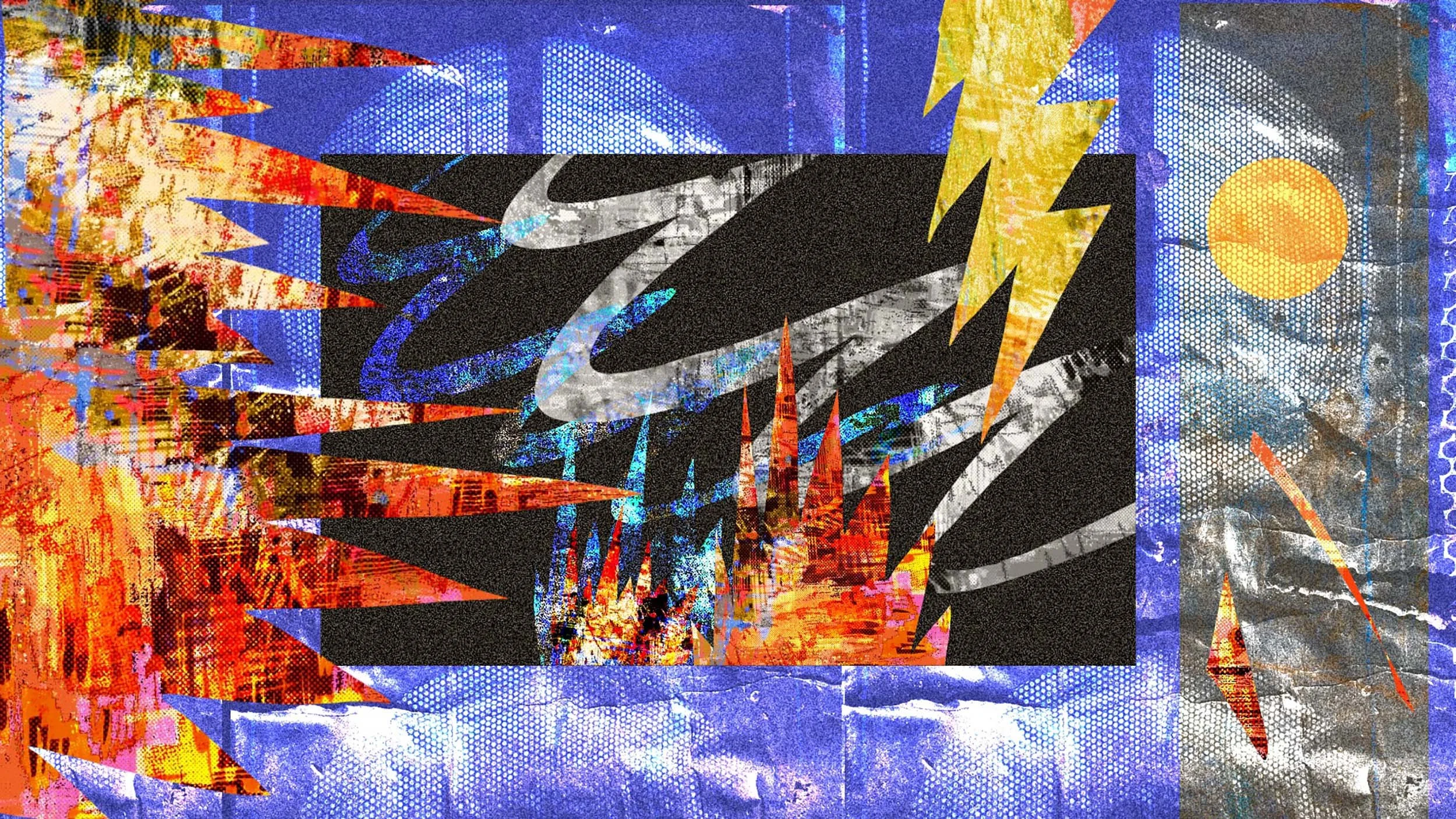How music helped me leverage my repressed rage for transformational change
by Juliane Bergmann
Illustration by Ariana Martinez. Our nonprofit generates funding in multiple ways, including through affiliate linking. When you purchase something through an affiliate link on this site, the price will be the same for you as always, but we may receive a small percentage of the cost.
I slept in front of a concert hall for the first time when I was fourteen. The Kelly Family, an Irish Folk band made up of long-haired, fresh-faced siblings, rose to fame in Germany in the nineties. It was all fiddles and power ballads and swaying lighters in sweltering stadiums — world peace clad in puffy pirate shirts and corduroy bell bottoms.
They were the happy family I wish I’d had instead of my divorced, alcoholic parents.
I avoided angry music like I avoided my angry parents. I didn’t understand the difference between blind rage fueled by addiction and healthy anger. I became scared of anger itself, so I pushed it down and denied its existence. Licensed clinical psychologist and board-certified music therapist Dr. Bethany Cook understands this fear: “After repressing anger for so long, it can feel scary to ‘open up’ the lid for fear you won’t be able to close it; it feels safer to just keep the lid shut, and the 10,000 locks locked.”
What was initially a conscious decision to suppress, became automatic. This is what physician and author of The Myth of Normal, Dr. Gabor Maté, calls repression: when “healthy feelings are banished beneath the level of consciousness.” I no longer felt angry, even in situations when it made perfect sense to be enraged.
Until 2018.
Ariana Martinez
I was thrown into a vicious custody battle with my ex over our four daughters. I’d asked the court for full custody after one of our children disclosed a physically abusive incident. I developed itchy rashes, breakouts, and digestive problems. I couldn’t eat or sleep; my hair fell out in clumps. I cried almost every day.
The same year, “Bodak Yellow” by Cardi B came out. I’d drive around in my banged-up Subaru in a mountain town full of people unironically wearing cowboy hats, “rapping” at the top of my lungs: “lil bitch, you can’t fuck with me, if you wanted to.” It was ridiculous.
But listening to Cardi B did make me feel stronger and energized me to keep going another day. A feeling that had been simmering under the surface for decades finally broke through the hardened crust and exploded.
Anger.
Ariana Martinez
Researchers Juslin and Vestfjall found that I wasn’t just imagining this impact but that music can induce emotions through brain stem reflexes caused by musical dissonance, visual imagery evoked by the sound, or triggered memories.
But now that I finally felt it, what would I do with my rage?
Researchers studying the connection between anger and music generally fall into one of two camps. The first posits that angry music makes people more enraged, causing aggression and hostility, while the second states that it can help process anger and regulate the nervous system.
According to Dr. Maté, “one healthy response to assault for any sentient creature is anger […] to defend our boundaries, physical or emotional.” Anger was the activating emotion that gave me the energy to set clear boundaries, make hard decisions, and act with courage. I began to understand that anger is “our body’s way of alerting us that a change needs to happen,” as Dr. Cook explained. Surprisingly, many musicians mirror the advice of mental health professionals. Maria Brink, frontwoman of the metal band In This Moment, described to Loudwire the reason she’s “always been drawn to music that has an element of darkness or aggression, [is] because it's a way to channel those emotions in a constructive way."
Ariana Martinez
It was the hardest year of my life so far, and I needed strength I didn’t have. That strength came from a few close loved ones and also from using music to draw from that deep well of anger inside of me that I’d finally accessed through experiencing primal protective rage regarding my children. “We all have that other darker side, that fighter,” Brink said to Outburn, “that thing when you have to protect your children and do what you have to do.”
Dr. Cook agrees there’s science underlying my newfound appreciation for angry music: “Music cannot only help you get in touch with repressed anger but also helps you move through it. Music provides a structure, forward momentum, and a clear end creating an emotional sense of safety.” The difference between listening to In This Moment’s “Blood” while punching the heavy bag at the gym and doing actual music therapy is that “in a therapeutic setting, the clinician is able to monitor and guide the amount, flow, and duration of the emotional expression, helping a client move through and past anger to also address the primary emotions underneath, such as fear, shame, or grief.”
After five years of therapy (including EMDR), support from loved ones, journaling, weightlifting, and breathwork, music is still one of the quickest, most effective ways for me to access and process anger. Thankfully, my family made it through the ordeal with our sanity (mostly) intact.
I still love The Kelly Family for getting me through my teens, but I’ve also come to appreciate concerts featuring more headbanging than hand-holding — like Rise Against, Deftones, and Five Finger Death Punch.
I no longer fear my anger. I regard it as an important data point, a signpost to show me what I need and initiate a powerful force for change.
Ariana Martinez





